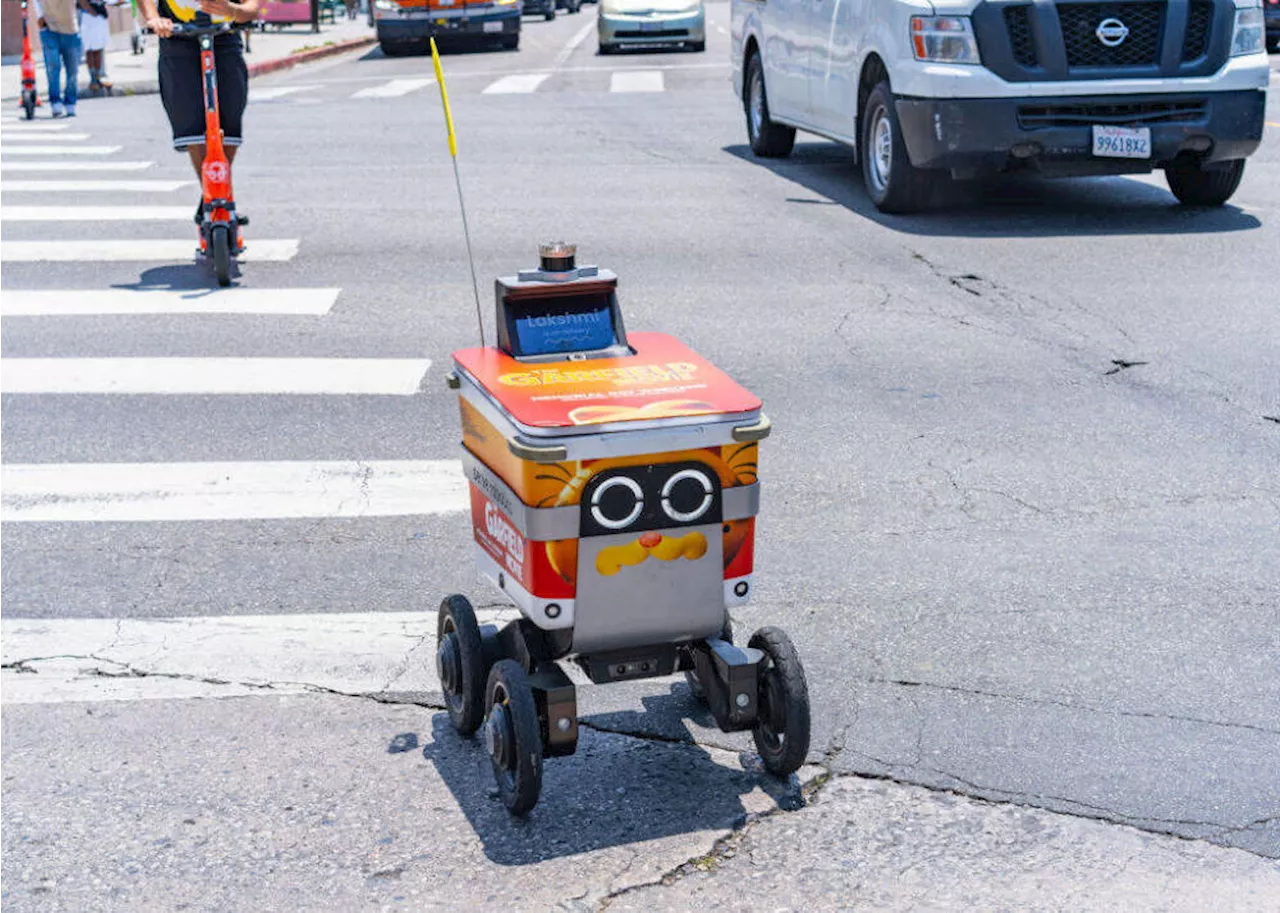Labor economist David Autor’s research shows how historically, technological advances hurt the incomes of middle- and working-class Americans. But when it comes to AI, Autor says the exact opposite could happen.
Labor economist David Autor’s research shows how historically, technological advances hurt the incomes of middle- and working-class Americans.professor of economics at MIT. Codirector of the Labor Studies Program at the National Bureau of Economic Research . Author of a recent essay in Noema Magazine titled “CNN NEWS ANCHOR: Tonight we're taking a closer look at a new technology that's making waves in the world of AI.
CHAKRABARTI: Well, last March, economists at Goldman Sachs estimated that AI could automate as many as 300 million full time jobs globally by 2030. So at first glance, one might expect a labor economist like David Autor to share those concerns. Computers were really ideally suited for carrying out tasks, jobs that could be described by a set of formal rules. So the rules that you would use for doing accounting or proofreading and typesetting, but also in repetitive production and operative environments where people are doing skilled work, but following a very well-defined set of procedures.
CHAKRABARTI: So let me summarize at least part of your work this way. It wasn't all that long ago I think that you coauthored a paper in the Quarterly Journal of Economics called New Frontiers, right? The Origins and Content of New Work from 1940 to 2018. That was a very interesting paper, Professor Autor.CHAKRABARTI: Just to sort of quote a couple of things here.
So, a world in which everyone is a crossing guard, a world in which we don't have much expert work, is less good for labor than a world in which everyone is an air traffic controller or doing some of their professional activity. So that's what we should be concerned about. Whether jobs will use expert skills that reward knowledge and competency and specialization. Or jobs that require, you know, human labor to do menial stuff. That's not as good as a scenario.
AZARA: If I upload a start or like a headline, it'll start to try to draft it based on that. Or for instance, we used a lot of AI prompts to write the website, you know, just to try to give us,"Hey, what would be a better way to paraphrase this page?" It's kind of like having like a friend there that's like,"Hey, have you thought about doing this?" I can bounce ideas off of it. I mean, not to like personify AI.
AZARA: It kind of was this moment of,"Oh my gosh, I just wrote a press release in five seconds. That's insane." It's awesome because it means I can devote more time to other projects, but yeah, I'm like, oh gosh, this is just the beginning. Like, where is it going to go from here? You know, am I writing myself out of a job? I don't know. I hope not! Because I would hope that you would still have — everything still needs an editor.
AUTOR: Right. We would be less productive and less wealthy in general, if we didn't have computerization to make many more things more productive, but some people would be certainly be better off. But notice that what Elisa did not say is,"This does my job for me." What she said instead is,"It helps. It speeds things up, but I need to be there supervising it because it comes up with crazy stuff."Right? And so it actually requires her expertise to do this work. She did not say,"Anybody could take this machine and do my job." She said,"I need to be there to supervise." And this is true of a lot of AI applications.
What tends to happen is when they're both uncertain, the doctor will defer to the AI. And when they're both confident and yet they disagree, the doctor will tend to override the AI. And in general, neither of those appears to be the right decision.AUTOR: When they're both uncertain, the doctor probably ought to go with his or her gut because they have a lot more ancillary information.
And it didn't come about because of technology. It came about because of actually a social movement where nurses recognized they were underused and fought against the kicking and screaming of the American Medical Association to create this new credential.
You said that,"AI can enable a larger set of workers equipped with the necessary foundational training to perform those higher-stakes decision-making tasks currently arrogated to elite experts." You mention doctors, lawyers, software engineers, et cetera.That AI used well can assist with restoring," this is the key part,"the middle skill, middle class heart of the U.S. labor market that has been hollowed out by automation and globalization." Okay.
AUTOR: That's correct. So the Industrial Revolution, it took about 60 years before it benefited rank and file workers. We had a good century of it from about 1880 to 1980 and it was a very productive way to organize work. It was complementary to people with high school educations and it built the middle class of a lot of the industrialized world.
Why do I think they're too — why people are not sufficiently optimistic? Because I think there's great potential that gets overlooked in the discussion of which jobs will be automated. The most fundamentally important uses of new technologies are not for automation. They're instead things that enable new human capabilities that were not previously feasible, right?
But when we're talking about rebuilding the middle class, class is a very specific word because we're talking about incomes, really, and people's sense of security in their lives.
And I agree that I'm concerned about the incentives as well. I don't think corporations have necessarily the right incentives. It's not that they're malevolent, but why should they be concerned about aggregate employment? It's not their job. So policy is necessary. And we could talk at greater length about that.
But okay, we have another little thought experiment here about people who don't feel anywhere near as optimistic, okay? So some of those folks include British voice actor Mike Cooper. CHAKRABARTI: Okay, so here's what he's talking about. We have a recording here that Cooper provided to the Washington Post last year, and that recording will then be followed by an AI replication of Cooper's voice produced by a voice generator called Resemble AI.
UNIDENTIFIED MALE VOICE: Okay, this is probably going to be too easy, but let's try it anyways. Tell me what you think.producer Jonathan Chang. Or, actually wait, is it his voice? I haven't heard these yet, Professor Autor, so we're gonna listen to a second clip, and then you and I are gonna try and guess which one is Jon's real voice. So here's the other clip.
United States Latest News, United States Headlines
Similar News:You can also read news stories similar to this one that we have collected from other news sources.
 Brittney Griner Describes Russian Labor Camp Ordeal: 'Slave Labor'In an excerpt from her book Coming Home, Brittney Griner describes the conditions she endured while in a Russian labor camp
Brittney Griner Describes Russian Labor Camp Ordeal: 'Slave Labor'In an excerpt from her book Coming Home, Brittney Griner describes the conditions she endured while in a Russian labor camp
Read more »
 David Archuleta Returns to 'American Idol'Ryan is a TV/film news and feature writer for Collider, whose genre expertise includes horror, thrillers, and reality television, among others.
David Archuleta Returns to 'American Idol'Ryan is a TV/film news and feature writer for Collider, whose genre expertise includes horror, thrillers, and reality television, among others.
Read more »
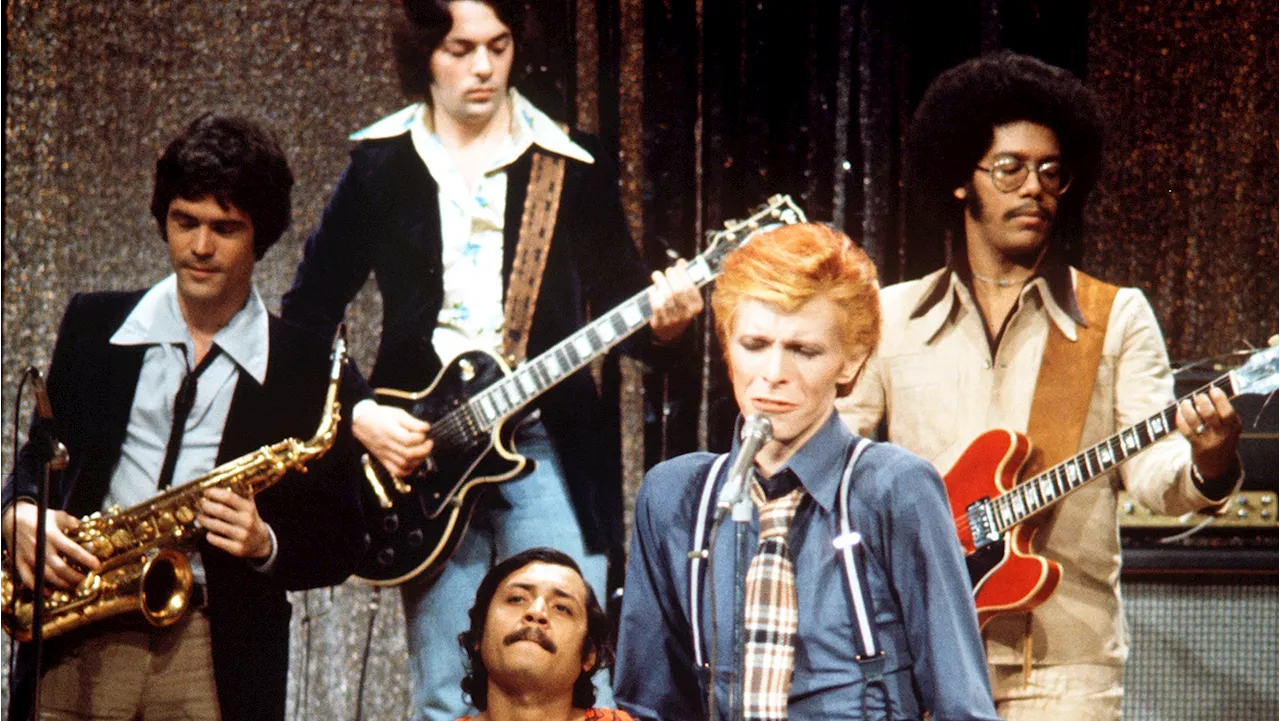 Watch David Bowie and David Sanborn Serenade the ‘Young Americans’ on ‘Dick Cavett’David Bowie performed 'Young Americans' on 'The Dick Cavett Show' with David Sanborn playing saxophone behind him.
Watch David Bowie and David Sanborn Serenade the ‘Young Americans’ on ‘Dick Cavett’David Bowie performed 'Young Americans' on 'The Dick Cavett Show' with David Sanborn playing saxophone behind him.
Read more »
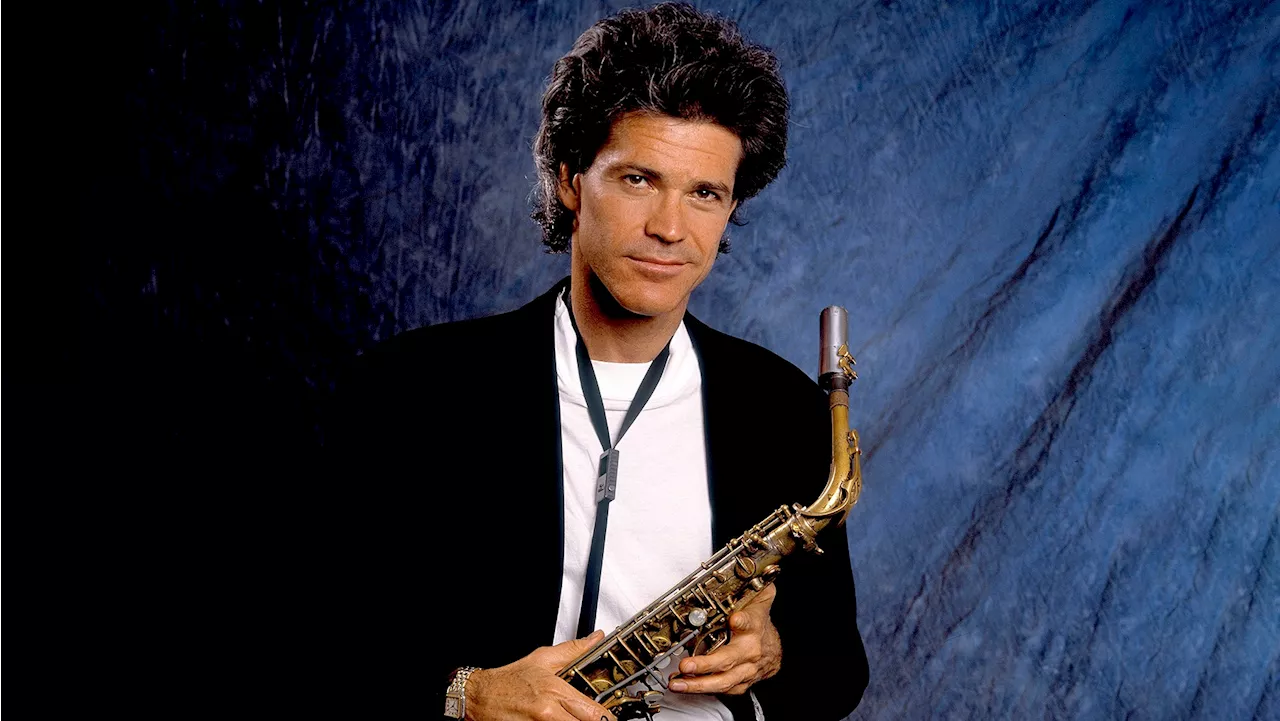 David Sanborn, Jazz Saxophonist Who Played on David Bowie’s ‘Young Americans,’ Dead at 78David Sanborn, the saxophonist, has died at age 78 after a battle with prostate cancer, Rolling Stone confirmed.
David Sanborn, Jazz Saxophonist Who Played on David Bowie’s ‘Young Americans,’ Dead at 78David Sanborn, the saxophonist, has died at age 78 after a battle with prostate cancer, Rolling Stone confirmed.
Read more »
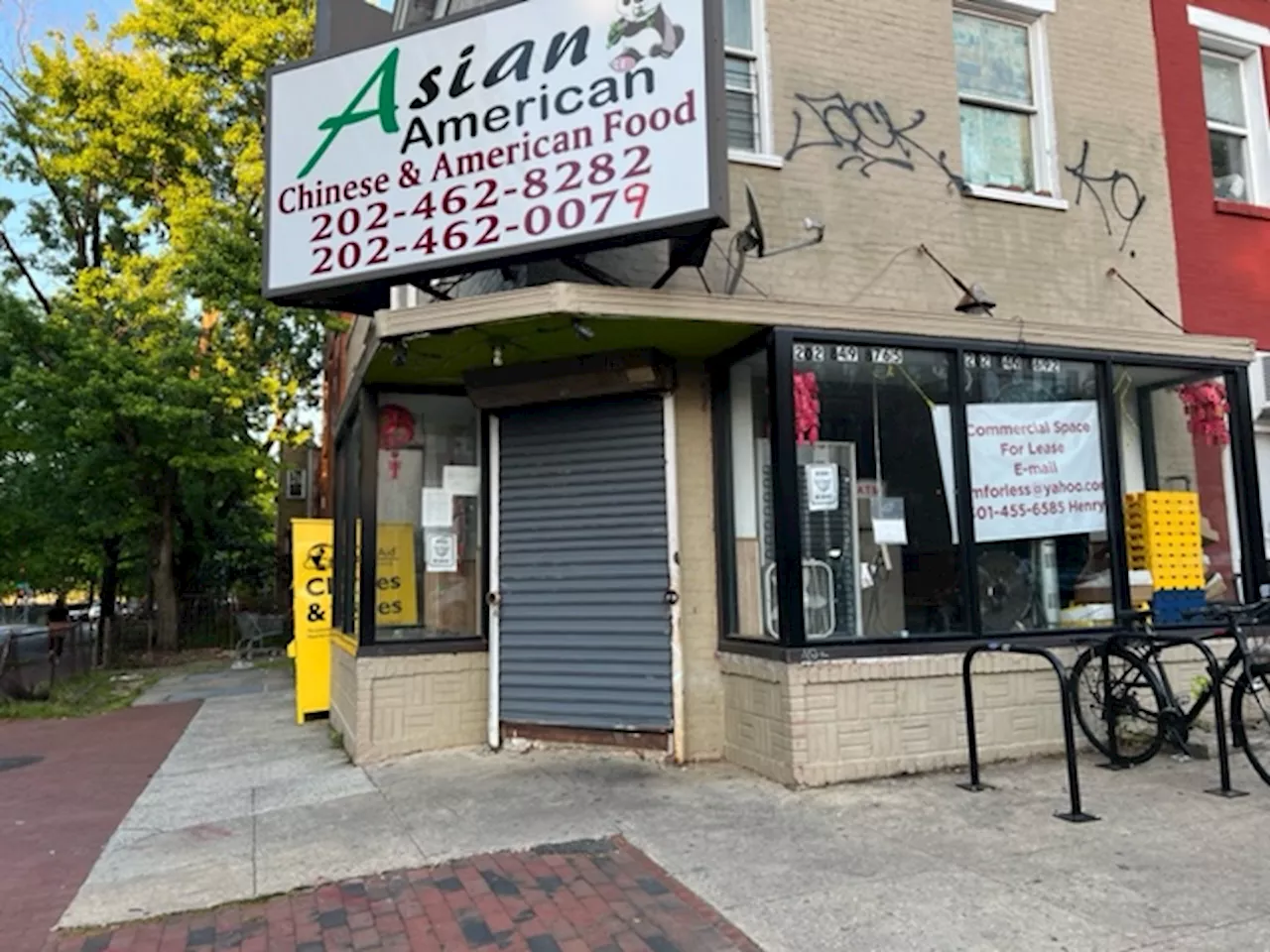 Asian American and Chinese & American Food space for lease11th and P Street, NW 'Dear PoPville, I'm hoping someone has more info about what happened! It hasn't stopped being busy from what I can tell (and I walk by it multiple times a day usually), even saw the owner/ family getting their daughter from the school nearby a few weeks ago still, so...
Asian American and Chinese & American Food space for lease11th and P Street, NW 'Dear PoPville, I'm hoping someone has more info about what happened! It hasn't stopped being busy from what I can tell (and I walk by it multiple times a day usually), even saw the owner/ family getting their daughter from the school nearby a few weeks ago still, so...
Read more »
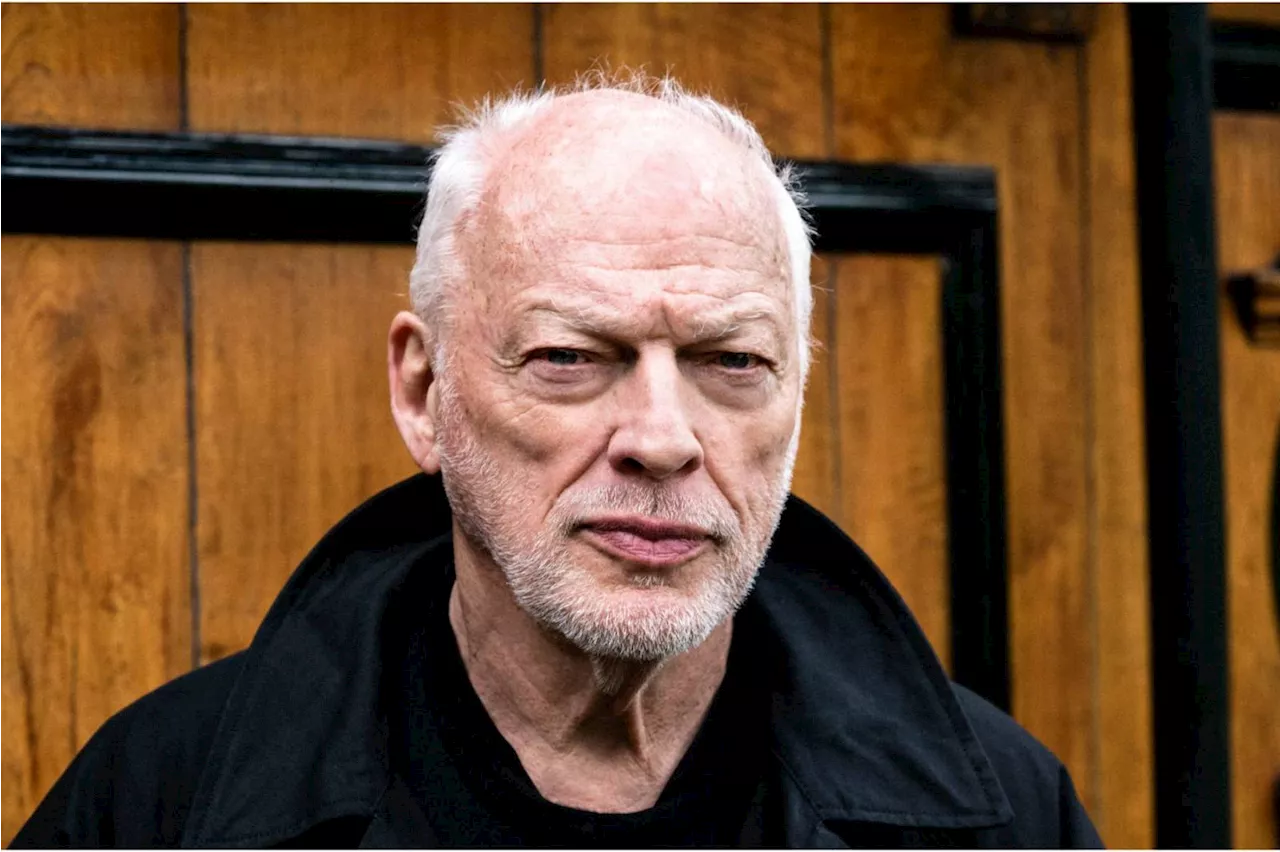 David Gilmour Sets First U.S. Tour Dates in Eight YearsDavid Gilmour has booked his first North American concerts in eight years.
David Gilmour Sets First U.S. Tour Dates in Eight YearsDavid Gilmour has booked his first North American concerts in eight years.
Read more »
